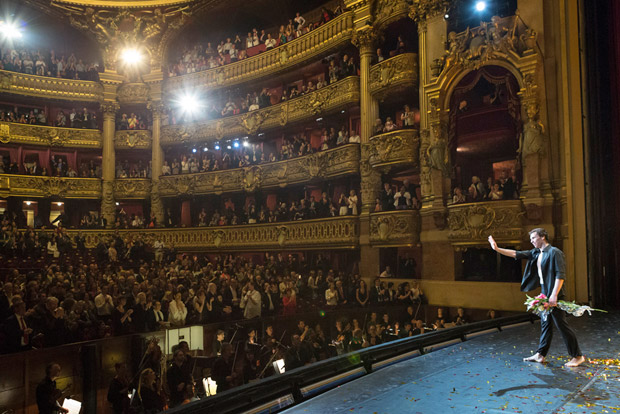
© Sébastien Mathé / Opéra national de Paris. (Click image for larger version)
Paris Opera Ballet
Nicolas Le Riche, Soirée Exceptionelle
Où allez-vous?, Les Forains excerpt, Graduation Ball solo, Raymonda Act II excerpt, L’Après-midi d’un faune, Le Jeune homme et la mort, Appartement excerpt, Caligula excerpt, Boléro
Paris, Palais Garnier
9 July 2014
www.operadeparis.fr
See the entire gala on the Paris Opera Ballet website
A cascade of glittering foil showered down on Nicolas Le Riche at the end of his farewell gala in the sumptuous Palais Garnier. (The Paris Opera Ballet doesn’t go in for floral tributes for men and the boxes are too far away for flower throws.) He was still gleaming with sweat from his orgiastic performance as the central figure in Béjart’s Boléro – a rare indulgence for a renowned étoile without an overweening ego. Smiling with tears in his eyes, he acknowledged the standing ovation and rhythmical applause from the packed opera house, the theatre in which he had spent his 35 years as a dancer.

© Sébastien Mathé / Opéra national de Paris. (Click image for larger version)
Though he has guested abroad (including London), he has always been loyal to the Paris Opera Ballet. The programme he chose for his soirée exceptionelle reflected the stages of his career, first as a pupil in the POB school, appearing in Rudolf Nureyev’s production of Raymonda in 1983, aged 11, then dancing the Drummer Boy’s solo from David Lichine’s Graduation Ball at his graduation performance. Le Riche was promoted to the rank of étoile at the age of just 21 and he has remained at the top of his profession ever since. Only the official retirement age of 42 requires him to leave the company, alas, though he may be invited back as a guest.
He opened the evening modestly, dancing in dark pyjamas to a wistful song by a musician friend, Matthieu Chedid, wondering ‘Où allez-vous?’ ‘Where are you going?’ The choreography, Le Riche’s own, referred to his favourite roles, giving glimpses of his elegant classical line as a danseur noble, an aspect of his many talents he elected not to reveal again. Swiftly, he reappeared in costume for the entry of the travelling fairground troupe from Roland Petit’s Les Forains (1945). The other participants in the first scene from this charming piece were pupils from the POB school, as leggy as colts. One youngster, introduced by Le Riche as Francisco Mura, then launched bravely into the Drummer Boy’s virtuoso solo: what a debut for a student!
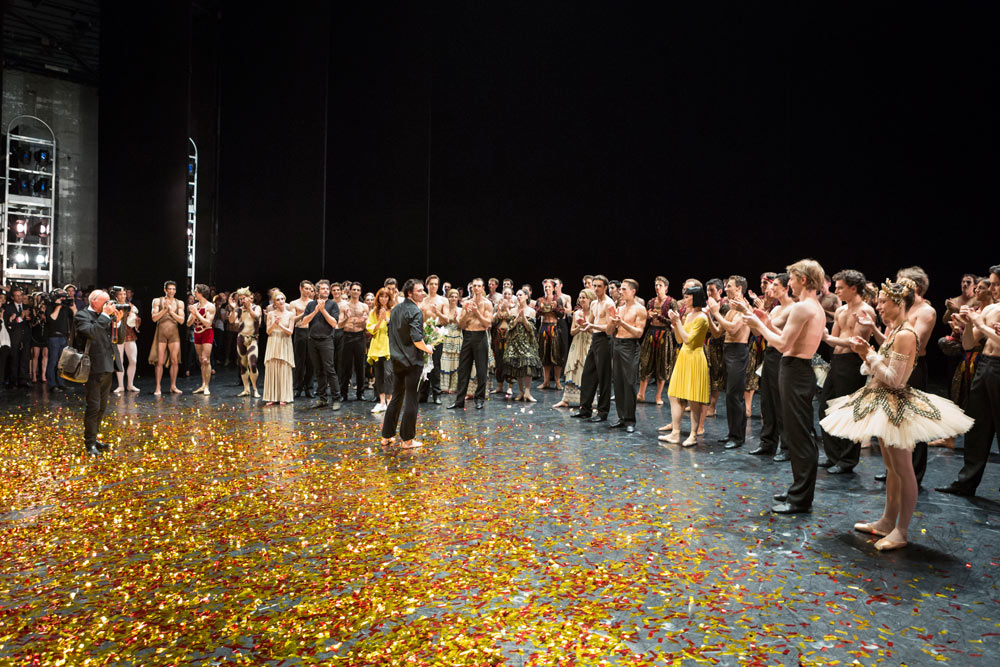
© Sébastien Mathé / Opéra national de Paris. (Click image for larger version)
The next excerpt, national dances from Act II of Raymonda, looked like an under-rehearsed school show, although performed by corps and principals (most of whom did very little in their gorgeous Georgiadis costumes). The programme came to life with a performance of L’Après-midi d’un faune in front of Bakst’s backcloth that evoked how shocking the 1912 original must have been. Jérémie Bélingard as the faun, a role Le Riche has relished, has a fierce profile and powerfully feral presence: when he put his outstretched arms on either side of the chief nymph (Eve Grinsztajn), she and we knew exactly what he wanted. Almost swooning in surrender, she dropped her scarf deliberately. Her sweetly prim maidens, returning to retrieve it, retreated in justified alarm. The audience’s response to the headily sensual performance was a relieved ‘Bravo’ – at last.
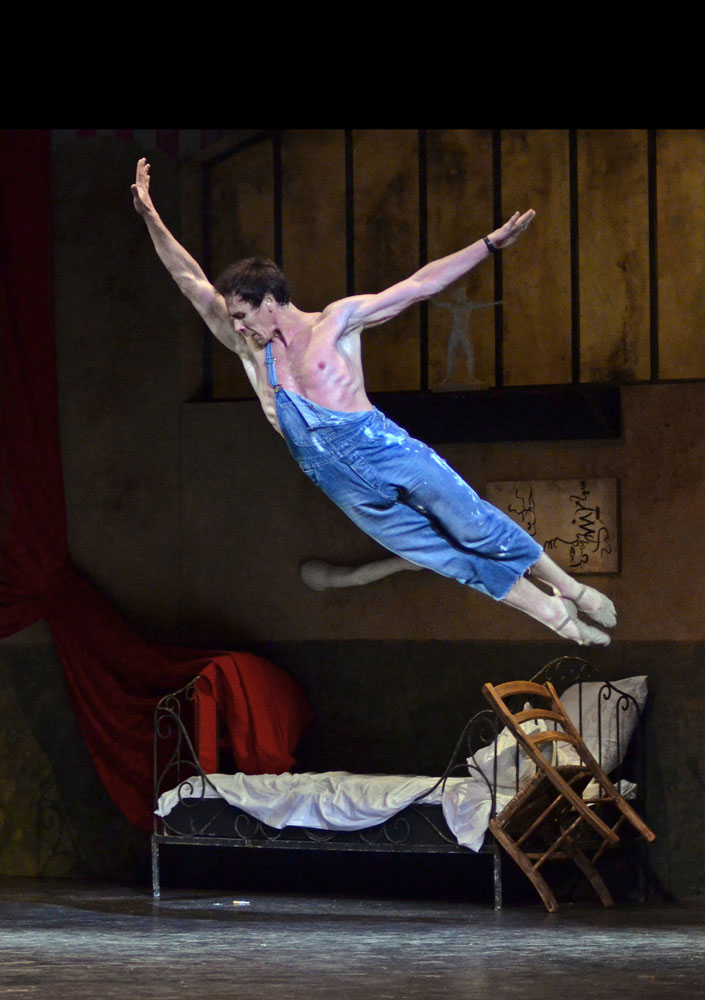
From April 2013 when Le Riche danced with Tamara Rojo and ENB at the London Coliseum. © Dave Morgan. (Click image for larger version)
After the first interval came Roland Petit’s marvellously melodramatic Le Jeune homme et la mort. No longer a jeune homme, Le Riche has the maturity to interpret the role of the artist as he sees fit, in repsonse to the woman incarnating La Mort. When he danced it with Tamara Rojo at the London Coliseum in April last year, she was a sexual sadist. In contrast, Eleonora Abbagnato was ruthlessly indifferent to his anguish, making it evident from the start that she was his fate, a figment of his frantic imagination. Le Riche can still seem spontaneous in his parcours over the furniture in the seedy attic, hurtling across the stage as recklessly as ever. He’s driven to suicide by his own existential despair as much as by her taunting. Though the ballet lasts 17 minutes, the hallucinatory dance of death in his head is over in an instant.
I’ve a suspicion that the next piece, the ‘Door’ pas deux from Mats Ek’s ballet, Appartement, created for the POB in 2000, is also a fantasy. A woman knocks at a door and daydreams the relationship that might develop when a man answers it. Sylvie Guillem appeared as Le Riche’s invited guest, curious, mischievous and extravagant. Sometimes she was his soul-mate, dancing companionably side by side; at other times, they investigated each other’s body parts like animals making acquaintance; they treated each other rudely and crudely, foot in face, with a strong sexual attraction fizzing between them. At the close, he yanked her behind the door to join him.
Less grotesque than most Mats Ek creations, the pas de deux has a kind of childlike innocence that made it hard to credit that both performers are in their forties. It was a pity that Guillem apparently refused to allow it to be streamed live as part of the spectacle transmitted to cinemas and electronic screens for spectators outside the Palais Garnier.
Towards the end the evening, Guillaume Gallienne, actor of the Comédie Francaise, paid tribute to his friend’s gifts in rhyming couplets before two young men, Mathieu Ganio (étoile) and Audric Bezard (premier danseur), performed a brief extract from Le Riche’s 2005 ballet Caligula. Bezard was Caligula’s horse, Incitatus, being lunged on a long rein by his master – a simple and effective incarnation of a handsome beast.
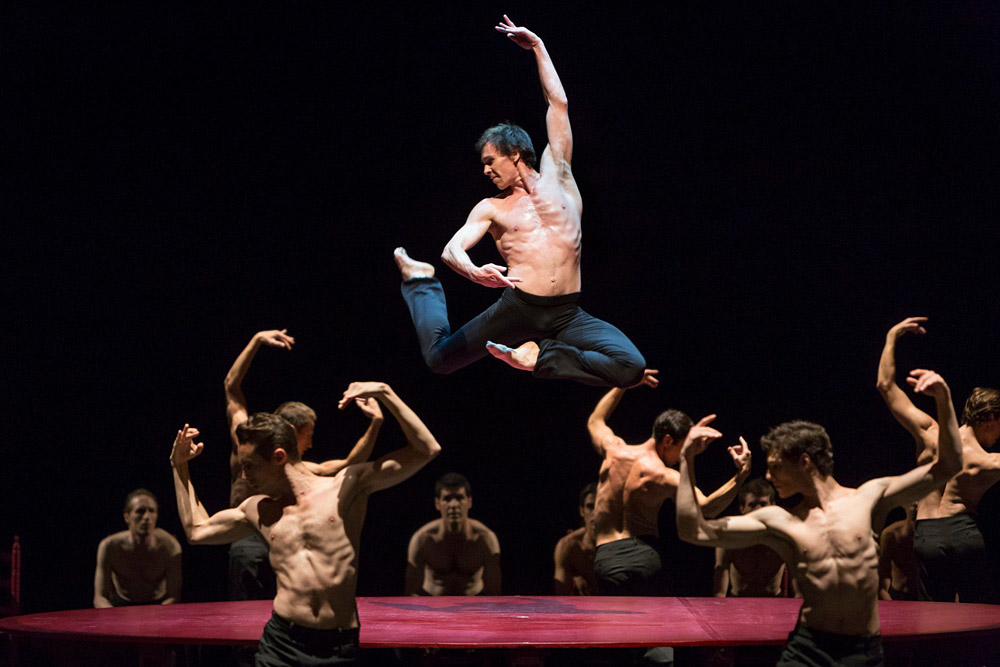
© Sébastien Mathé / Opéra national de Paris. (Click image for larger version)
Then came Boléro, with Le Riche elevated on a platform encircled by topless male dancers, 18 named on the cast sheet, the rest anonymous. Dramatic top lighting made their lean torsos look gaunter than they are; Le Riche himself has no spare flesh. He danced as defiantly as the Chosen One in Le Sacre du printemps, impelled by the swelling music and revelling in his power over dancers and spectators while knowing this was his last farewell.
The audience applauded for at least 20 minutes as he took his bows, alone and with the other members of the company, guest artists and his two little girls. As the drop curtain finally fell, a roar of cheers resounded from the stage. Le Riche is losing the big ballet family he has known for much of his life, but has projects under way with smaller groups, while studying a management course. The Paris Opera management honoured his departure with this galaof his own choosing instead of the more usual full-length ballet, and made it available to the rest of the world. At a champagne reception afterwards in the Grand Foyer, he was awarded the title of Commandeur des Arts et de Lettres by the Culture Minister, Aurélie Filipetti.

© Sébastien Mathé / Opéra national de Paris. (Click image for larger version)
Le Riche’s going marks the end of an era at Paris Opera Ballet. He was the last of Nureyev’s protégés, after Sylvie Guillem, inheriting the Russian’s passionate respect for the classical repertoire while welcoming the new and experimental. Benjamin Millepied takes over the company’s artistic directorship from Brigitte Lefèvre in the autumn. On verra – we shall find out.

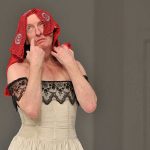
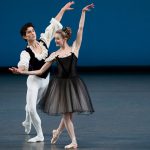



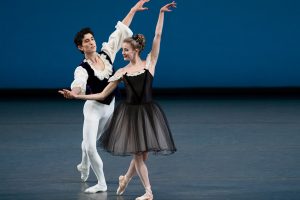
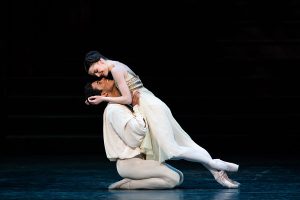
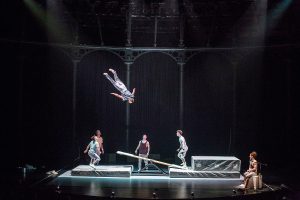



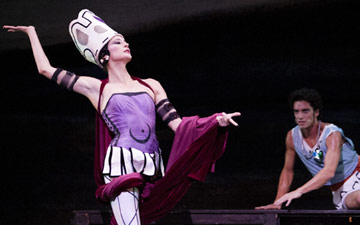
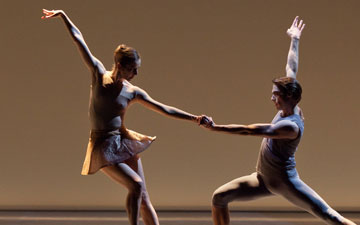

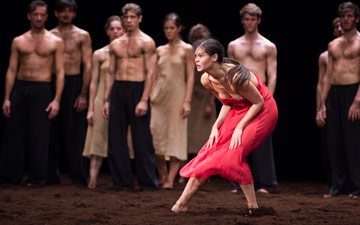
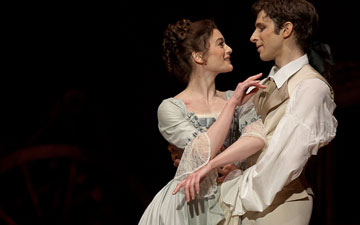
Correction: Though Nureyev gave Le Riche leading roles when he was just 19, it was Nureyev’s successor as artistic director of the Paris Opera Ballet , Patrick Dupond, who promoted him to étoile at the age of 21.
Thanks Jann, and thanks to the reader who mentioned. The text of the review is accordingly modified.
[…] Read the report over at Dance Tabs […]